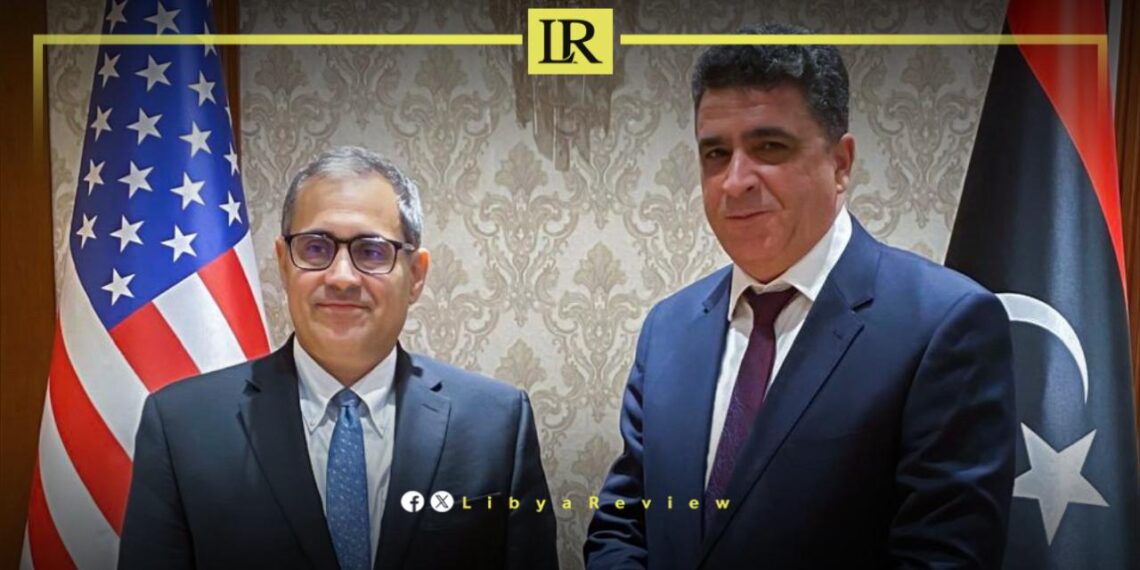The U.S. Chargé d’Affaires to Libya, Jeremy Berndt, announced that he discussed public sector audits in Libya with the Head of the Audit Bureau, Khaled Shakshak.
The discussion took place during a meeting in Tripoli, which was also attended by a delegation of budget and technical assistance experts from Washington, including representatives from the Office of Management and Budget at the White House, the U.S. Department of State, and the United States Agency for International Development (USAID).
In a tweet posted by the US Embassy on X (formerly Twitter), Berndt expressed his satisfaction with the meeting. He described the dialogue as productive, highlighting the Audit Bureau’s efforts to conduct reliable and credible audits of Libya’s public sector.
Berndt also emphasised the importance of maintaining the independence and technical integrity of the Audit Bureau. He noted that this is crucial for enhancing government transparency and accountability in Libya. The discussions also focused on ways to strengthen collaboration through technical assistance provided by USAID.
The U.S. Embassy’s tweet underlined the ongoing commitment of the United States to support Libya in its pursuit of greater transparency and good governance.
Earlier this week, Berndt emphasized the significance of the upcoming municipal elections as a key opportunity for Libyans to select their local leaders and enhance accountable governance across the country.
Berndt shared these remarks on Sunday via a post on the platform “X,” following what he described as a “productive” meeting with Dr. Emad Al-Sayeh, the Chairman of Libya’s High National Elections Commission (HNEC).
During their discussion, Berndt and Al-Sayeh explored ways to strengthen U.S. technical support to the HNEC and reviewed the progress made in preparing for the municipal elections.
The candidate registration process for the first group of municipal elections commenced on Sunday. The HNEC has provided a link on its website to verify the endorsements of those interested in running. The number of registered voters for the first phase of the elections has reached 210,545.
The HNEC noted that the registration numbers exceeded expectations given the population of the 60 municipalities where the first phase will take place. The elections are set to be held in 17 municipalities in the southern region, 31 in the western region, and 12 in the eastern region.
The HNEC has outlined a three-step process for distributing voter cards. First, voters must visit the polling centre where they registered, bringing proof of identity, such as a passport, family booklet, or ID card. The second step involves presenting this identification to the verification officer. Finally, voters receive their voter card after signing the receipt register. The country has established 14,140 polling centres for this purpose.


